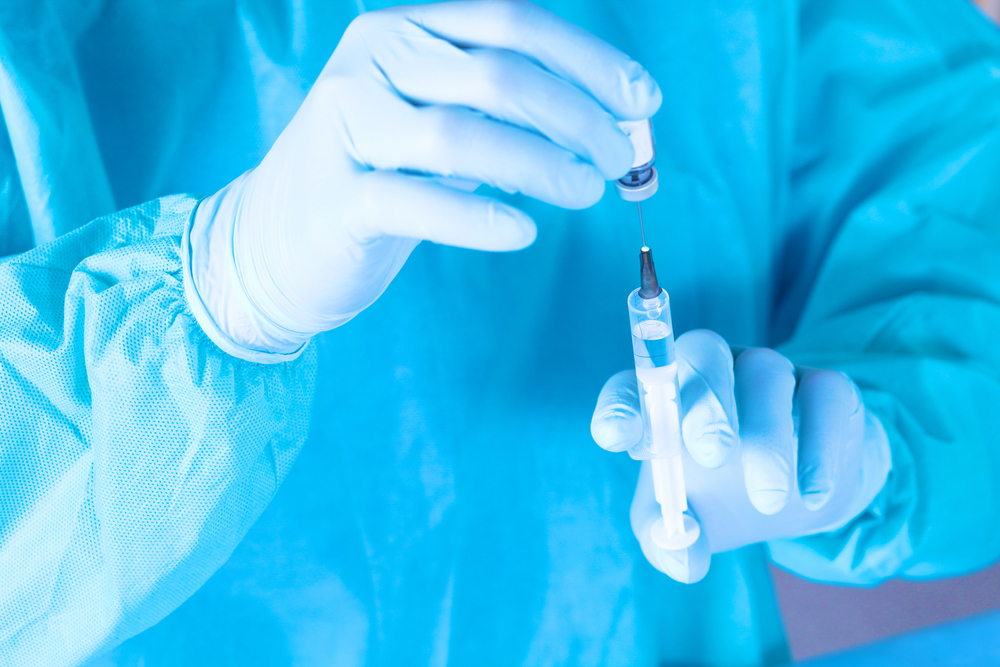
Tests conducted by National Institutes of Health scientists showed that a single dose of a highly diluted VSV-Ebola virus (EBOV) vaccine is fully protective against the disease in infected monkeys.
The dose is approximately one-millionth of what is in the vaccine being used to help control the ongoing Ebola outbreak in the Democratic Republic of the Congo.
The vaccine appears to be safe and highly effective, as about 250,000 people have received the investigational VSV-EBOV vaccine since August 2018 to help stem the outbreak. With the continued need to vaccinate individuals in the Congo and surrounding areas, a potential shortage of VSV-EBOV vaccine is a concern. Thus, further dose adjustment is a possible solution.
Scientists from NIH’s Rocky Mountain Laboratories tested several dosage strengths, including one with 10 million plaque-forming units (PFU). They determined that a vaccine with 10 PFUs was just as effective as the highest dose tested, which, incidentally, was still lower than the one used in the Congo. They vaccinated the monkeys 28 days before infecting them with a lethal dose of EBOV and then monitored them for 42 days after infection. Even the monkeys given the lowest dose appeared completely protected from disease.
The findings could make more vaccines available for more people, and the smaller dosage may reduce adverse reactions or side effects. These promising findings in the monkeys, macaques to be specific, help support the possibility of similar clinical trials in people.




